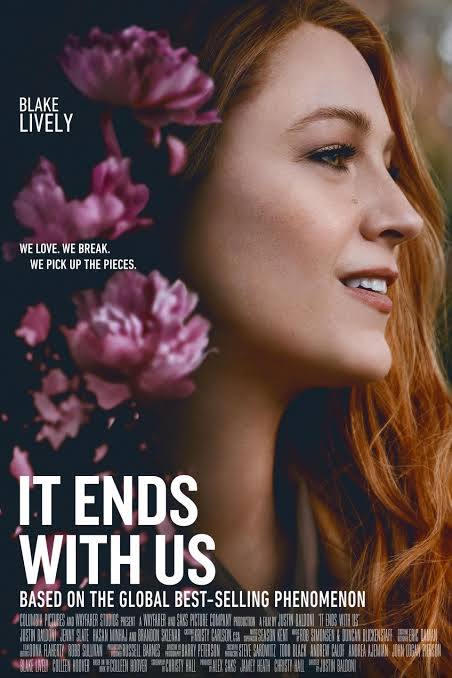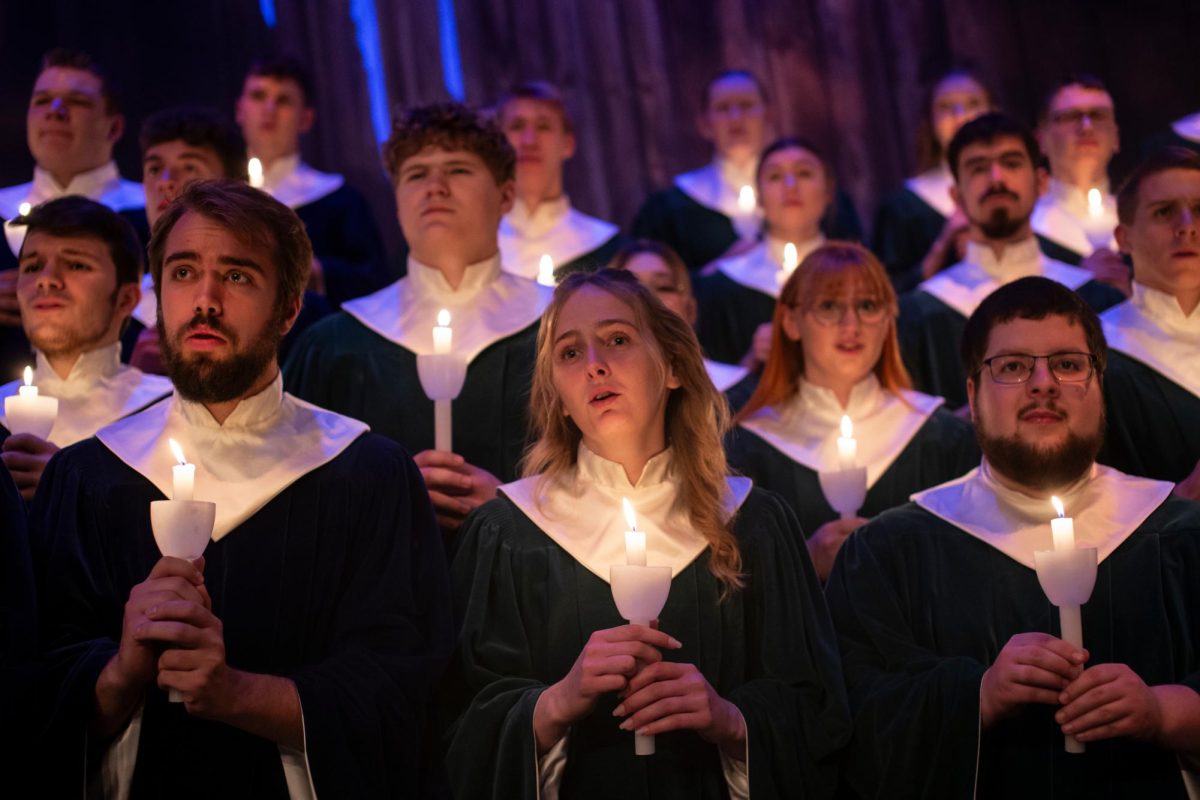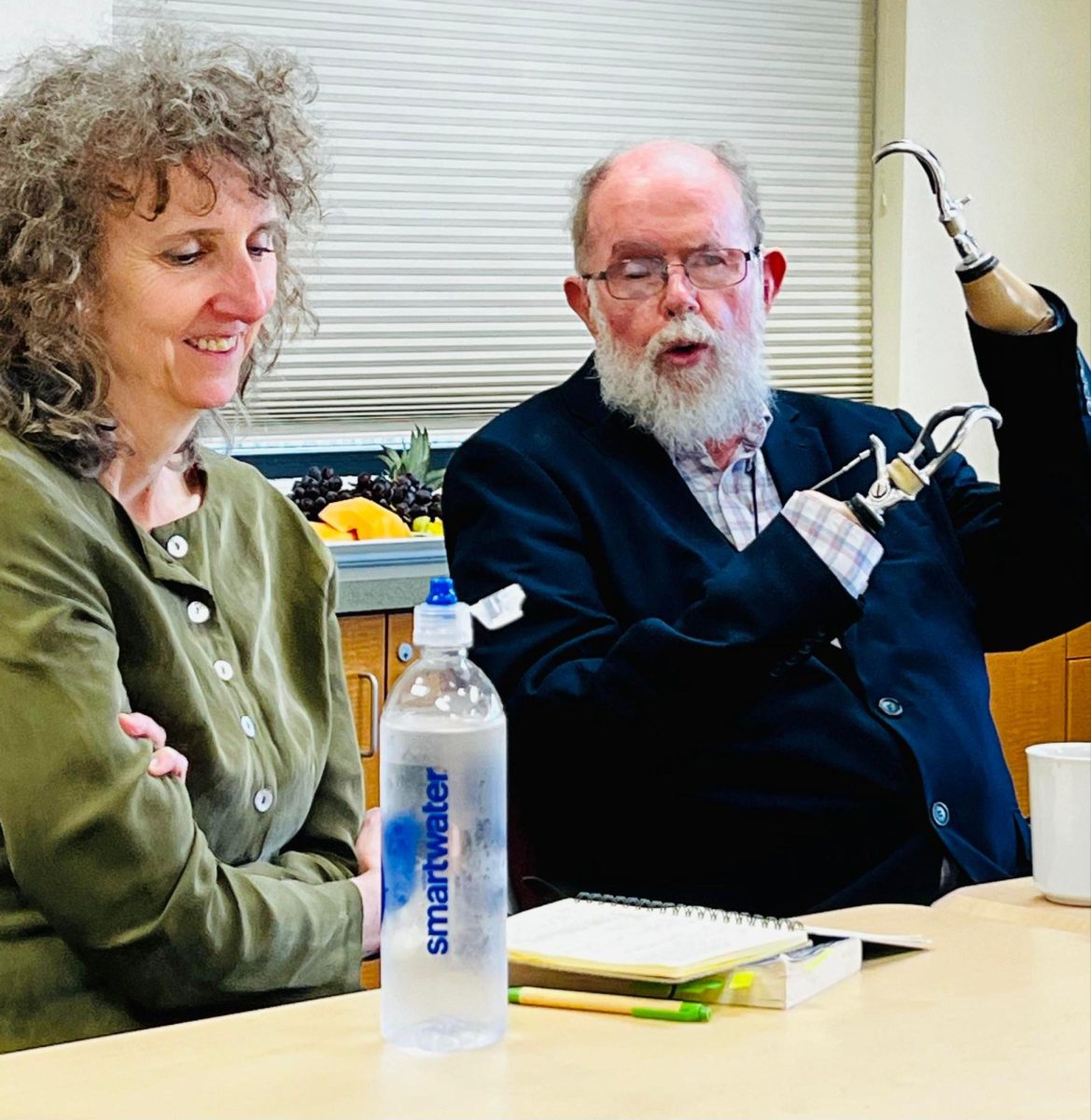Trigger Warning: Domestic Violence
There is much controversy surrounding the 2016 novel “It Ends With Us” by Colleen Hoover, as well as the film adaptation that was released in August this year, directed by Justin Baldoni. Given the controversy of Colleen Hoover’s writing in general, it isn’t surprising that the movie had nothing short of mixed reviews. Baldoni isn’t only the director but co-star to actress Blake Lively. Lively is most known for her roles in “Gossip Girl” and “The Age of Adaline” while Baldoni is most known for his role as Rafael in the 2014 television series “Jane the Virgin.” Here are my unabashed thoughts on both.
The main character of the novel — Lily Bloom — is a 23-year-old woman, who had just moved to Boston after her father died, in pursuit of opening her own flower shop. She meets Ryle Kincaid, a neurosurgeon who lives in her building, and they begin to have a relationship. However, she comes into contact with her first love, Atlas Corrigan, which sparks issues in her relationship with Ryle. Later in the book, Ryle becomes abusive, and Lily struggles to leave the relationship.
I read “It Ends With Us” in high school when I had just gotten into reading. I didn’t know much about ‘good’ literature or ‘good’ writing. In all, the novel was entertaining and kept me interested throughout. It has everything a book needs — a likable and quirky protagonist, a perfect-sounding male love interest and a past love bubbling under the surface. I applaud Hoover for her development of a complex character and attempting to tackle a difficult topic like domestic abuse, especially because her audience tends to cater towards women of all ages but more specifically young adults.
In the novel, it feels like Hoover is trying to get the readers to fall in love with Ryle to then be shocked when he becomes emotionally and physically abusive. Ryle shows the tell-tale signs of toxic masculinity and manipulation from their very first interaction. I assume that Hoover was attempting to make the reader feel blindsided when Ryle became abusive to encompass the feelings of victims of domestic violence. In all, I feel that Hoover’s writing is slightly juvenile and is mainly used for entertainment as opposed to a way to raise awareness for these issues, which is a problem I had with the novel and some of her other writing.
I have similar critiques for the movie as I do for the novel; however, watching the movie, I found myself cringing even more than I did when I was reading. To begin, Blake Lively is an incredible actress, but I simply believe she wasn’t a good fit for Lily Bloom. She is upwards of ten years older than Lily is in the book, which made it difficult for me to connect the book character to the one in the film. Additionally, Lily’s outfits in the film were overdone. In the novel, Hoover makes it seem as though Lily’s style is quirky but in a way that still makes sense. In the film, I was often confused about the stylistic choices, leading to even more discrepancies that took away from my viewing experience as a whole.
On a much more positive note, Justin Baldoni’s rendition of Ryle was done exceptionally well. He embodied Ryle’s manipulative behaviors, “wooing” Lily and drawing her in before the abuse began.
Overall, the biggest criticism I have for the film is how rushed it was, specifically due to the removal of some scenes. I was disappointed by the removal of the head-butting scene and the scene in which Ryle read Lily’s diary. These were scenes that solidified Ryle’s abuse, and his toxicity towards Lily, that I felt were missing from the film. Another scene that was lost was the scene in which Lily memorized Atlas’ phone number in case she would ever be in trouble and need help. This was a huge part of the novel, and the film wasn’t the same without it, specifically because Atlas played an influential role in Lily’s realization of the abuse and how detrimental it was.
The ending also felt artificial and like it was trying to force a happy ending; whereas, a happy ending wasn’t necessarily needed for the plot. I feel that a less-perfect ending would’ve been much more powerful and thought-provoking.
The viewing experience would’ve been much different if I hadn’t read the book beforehand. If I was watching the movie with fresh eyes, Ryle’s violence and mannerisms would have given away the plot long before Hoover was intending. However, this may just be the qualms of adapting a novel to a film — everything happens right before your eyes, and you don’t have to draw conclusions on your own.
The biggest issue I had with the movie adaptation of “It Ends With Us” was the press surrounding it. It was marketed as a fun movie where you get your friends together and wear your florals (yes, Lively seriously said this to her fans). However, at the heart of the story is the issue of domestic violence. This is a heavy topic for a wide variety of viewers, and it’s possible that many victims were hoping to see this movie as a way to raise awareness for the issue. That being said, when Lively was interviewed on red carpets and in press interviews, she often steered the conversation away from domestic violence by changing the subject or making distasteful comments. Many times the interviews focused on intimacy, or the “steamy” scenes, instead of addressing the underlying themes and issues. In fact, the majority of the viewers probably didn’t even know about the triggering topic of domestic violence before watching the film.
Justin Baldoni took a different approach in his interviews. He made a point to discuss how painful the topic is and his support for survivors in his interview with “TODAY.” He has made a point to not appear in interviews about the film with Blake Lively, leading fans to believe that he isn’t happy with the way she’s marketing the film. Although this is just a controversy, I believe that the two lead actors have very different reasons for taking on this film. In short, both the movie and the novel are romance stories, centered around a unique female protagonist involved in a love triangle. I’ll be honest, I’m not a huge fan anymore of Colleen Hoover’s writing, but I feel as though “It Ends With Us” is one of her more captivating novels. After seeing the way both Lively and Hoover went about marketing this film, I’m hesitant to support either of their creative endeavors in the future. Adding a complex topic like domestic violence to the mix is hard to do right, and I can tell that Baldoni attempted to portray it sensitively and effectively.







